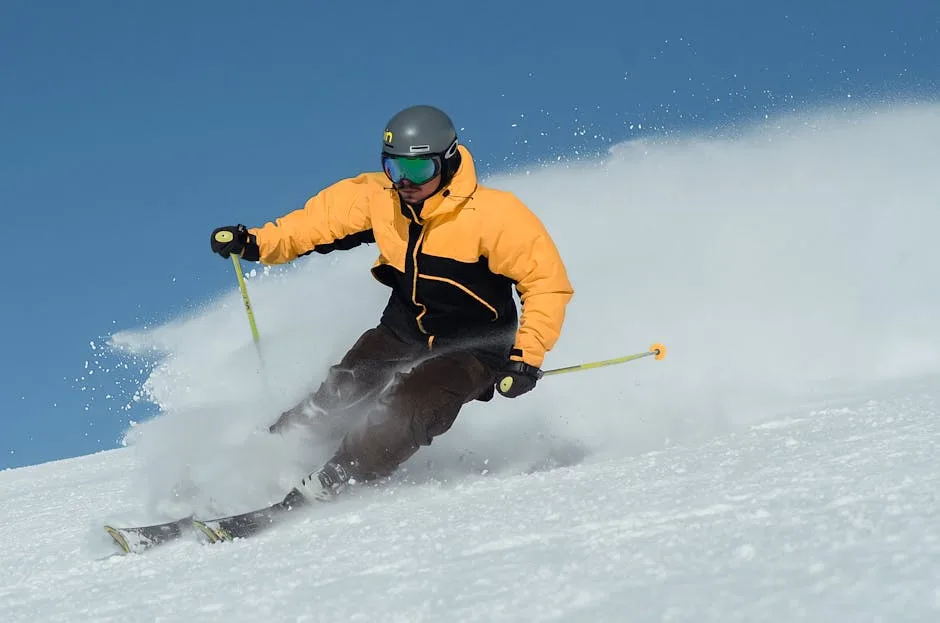
Max Bolkart, the first West German athlete to win the prestigious Vierschanzentournee ski jumping competition, passed away on April 27, 2025, at the age of 92. His death was confirmed by his daughter Margret Bolkart-Fetz, who cited advanced dementia as the cause, describing it as “a relief for him” in his final years1. Bolkart’s career spanned the 1950s and 1960s, a period when ski jumping was evolving into a modern sport, and his contributions left a lasting mark on its history.
A Trailblazing Career in Ski Jumping
Bolkart’s most notable achievement came during the 1959/60 Vierschanzentournee, where he became the first West German to win the competition. His victory was narrowly missed as a Grand Slam, finishing 5th in Bischofshofen2. He also represented West Germany in two Winter Olympics, placing 4th in Cortina d’Ampezzo (1956) and 6th in Squaw Valley (1960). Known for his distinctive style, Bolkart often competed in traditional pluderhose (baggy trousers) and a pudelmütze (a woolen cap), which became iconic symbols of his persona3.
Life After Competition
After retiring from ski jumping in 1965, Bolkart declined offers to coach and instead worked as an electrician until 1996. Despite stepping away from professional competition, he remained connected to the sport as an honorary guest at Vierschanzentournee events. In 1978, he was awarded the Bundesverdienstkreuz (Order of Merit of the Federal Republic of Germany) for his contributions to sports4. Artifacts from his career, including trophies and a schnellkochtopf (pressure cooker) prize, are displayed at Hotel Freiberg in Oberstdorf, serving as a testament to his legacy5.
Legacy and Media Tributes
Bolkart held the distinction of being the oldest living Vierschanzentournee winner until his death. Media outlets such as Eurosport, FAZ, and BR24 published obituaries and retrospectives highlighting his career6. Archival footage, including BR Retro videos of his 1963 training sessions, and photographs of his 1958 Kongsberg-Pokal win in Garmisch-Partenkirchen, have resurfaced in tributes7. His influence on the sport is remembered not just for his athletic achievements but also for his role in popularizing ski jumping in post-war Germany.
Conclusion
Max Bolkart’s passing marks the end of an era for ski jumping enthusiasts. His pioneering victories and enduring connection to the sport cemented his place as a key figure in its history. As the ski jumping community mourns his loss, his legacy lives on through memorabilia, media archives, and the continued admiration of fans worldwide.
References
- “Skisprung-Pionier Max Bolkart mit 92 Jahren gestorben,” Allgäuer Zeitung, Apr. 2025. [Online]. Available: https://www.allgaeuer-zeitung.de
- “Max Bolkart: Der erste deutsche Vierschanzentournee-Sieger,” Eurosport, Apr. 2025. [Online]. Available: https://www.eurosport.de
- “Nachruf auf Max Bolkart: Ein Leben für den Skisprungsport,” FAZ, Apr. 2025. [Online]. Available: https://www.faz.net
- “Max Bolkart und die goldenen Jahre des Skispringens,” BR24, Apr. 2025. [Online]. Available: https://www.br.de
- “Ski-Legende Max Bolkart: Trophäen und Erinnerungen in Oberstdorf,” heute.at, Apr. 2025. [Online]. Available: https://www.heute.at
- “Trauer um Max Bolkart: Der letzte große Pionier,” TT.com, Apr. 2025. [Online]. Available: https://www.tt.com
- “BR Retro: Max Bolkart im Training (1963),” BR24, Apr. 2025. [Online]. Available: https://www.br.de




